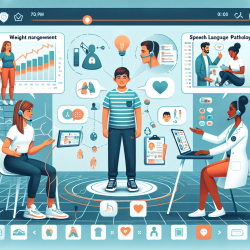Individualized Education Program (IEP) planning and meetings are crucial components of ensuring that students with special needs receive the tailored support they require. As school counselors, your role in these processes is indispensable. This blog aims to provide you with data-driven insights and practical strategies to optimize IEP planning and meetings, ultimately creating better outcomes for the children you serve.
Understanding the Importance of IEPs
IEPs are legally mandated documents that outline the specific educational needs of students with disabilities and the services required to meet those needs. According to the National Center for Education Statistics, approximately 14% of public school students in the United States receive special education services. This underscores the critical need for effective IEP planning and execution.
Key Components of an Effective IEP
Effective IEPs are comprehensive and tailored to each student's unique needs. Key components include:
- Present Levels of Academic Achievement and Functional Performance (PLAAFP): A detailed description of the student's current performance levels.
- Measurable Annual Goals: Specific, measurable objectives that the student is expected to achieve within a year.
- Special Education and Related Services: A list of services, including speech therapy, that the student will receive.
- Accommodations and Modifications: Adjustments to the learning environment or curriculum to support the student's learning.
- Progress Monitoring: Methods for tracking the student's progress toward meeting their goals.
Strategies for Effective IEP Meetings
IEP meetings can be complex and emotionally charged. Here are some strategies to ensure they are productive and child-focused:
- Prepare Thoroughly: Review all relevant documentation, including previous IEPs, assessments, and progress reports, before the meeting.
- Foster Collaboration: Encourage open communication among all team members, including parents, teachers, and related service providers.
- Focus on the Child: Keep the discussion centered on the student's needs and how best to meet them.
- Utilize Data: Use data from assessments and progress monitoring to inform decision-making.
- Be Flexible: Be open to making adjustments to the IEP as new information becomes available.
The Role of Online Therapy in IEPs
Online therapy services, such as those provided by TinyEYE, can play a pivotal role in IEP planning and execution. Telepractice offers several advantages, including:
- Accessibility: Students in remote or underserved areas can receive high-quality speech therapy services.
- Flexibility: Scheduling is often more flexible, allowing for sessions to be conducted at times that are convenient for the student and family.
- Consistency: Online platforms can ensure consistent service delivery, even when there are staffing shortages or other logistical challenges.
Conclusion
Effective IEP planning and meetings are essential for providing students with the support they need to succeed. By understanding the key components of an IEP, employing strategies for productive meetings, and leveraging the benefits of online therapy services, school counselors can make a significant impact on the lives of the children they serve. Remember, the goal is to create a supportive and collaborative environment where every student can thrive.
At TinyEYE, we are committed to partnering with schools to provide high-quality online therapy services that enhance the IEP process. Together, we can create better outcomes for all students.










